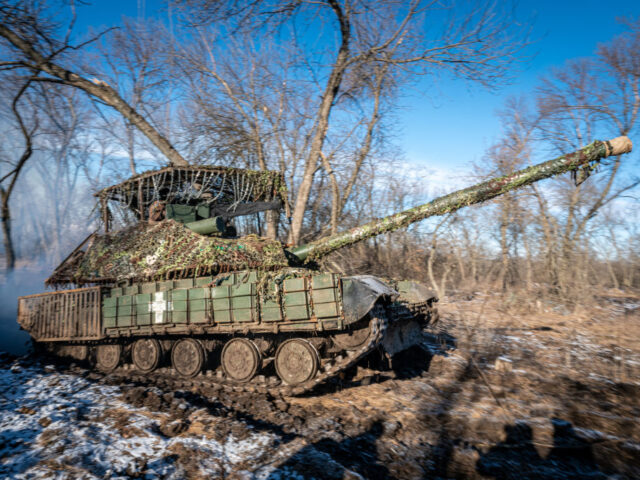After mega-hype for the Ukrainian Spring counteroffensive last year that failed to deliver, messaging is more circumspect in 2024, with the nation’s spy chief just hinting at action to come.
Russia is presently in the offensive stage but has failed to make the “significant success” they hoped for, Ukraine’s Defence Intelligence chief Kyrylo Budanov said on national television. Talking of what comes next, the spymaster said once Russia’s energy was exhausted, it would be Ukraine’s turn to strike back.
Making reference to a new Spring Counteroffensive implicit, but not overly cryptic, Budanov told television, per the Ukrainian Pravda: “their offensive continues. Somewhere in early spring, it will be completely exhausted… Currently, it’s the enemy’s move. It will end, and, I believe, ours will begin”.
This has not been the only reference to a coming Counteroffensive of late, with Ukrainian state media Ukrinform making clear last week the government needs Western artillery donations to “meet Ukraine’s defence and counteroffensive needs during the 2024 campaign.”
The low-key messaging about the apparently forthcoming 2024 Spring Counteroffensive may be an exercise in expectation management following the experience of the Ukraine 2023 Spring Counteroffensive, which was preceded by months of announcements and media attention. First, the long-discussed push-back against Russia failed to materialise, and then as Spring passed into Summer it finally launched but instantly became bogged down.
‘Stalemate’: Ukraine’s Top General Invokes WWI, Says NATO Doctrine Hasn’t Helped https://t.co/2LWbByBEHP
— Breitbart London (@BreitbartLondon) November 2, 2023
A variety of excuses for the failure of the much-vaunted counterattack was given, from the undergrowth in Ukraine being too thick to effectively fight through, to Russia having been allowed too much time to dig in and plant mines by the delays, to the West having let Ukraine down by not giving enough weapons as quickly as needed.
While Russia dug in before the counterattack, Ukraine has been doing much of the same since, sinking bunkers and trenches along the frontlines in recent months. With both sides now pretty well ensconced, the war has taken on a strong flavour of First World War trench warfare, a fact not lost on military commanders who have been adjusting their thinking to suit.
The head of Ukraine’s armed forces said he’s taken to studying a century-old book on trench warfare he found at the national military academy’s library to try and glean some tips, while NATO itself has revealed it is now training the troops of the Western alliance in the particulars of trench warfare again. Explaining the rationale, NATO said of the move: “In the cold, wet mud, the soldiers spent hours learning how to quickly clear corners, root defenders out of entrenched bunkers and make fighting positions safe for follow-on forces.
“While trenches might conjure visions of the First World War, they are increasingly common in Russia’s war against Ukraine. Trenches offer advantages for defenders, and significant hazards for attacking forces. For Allied forces to deter aggression – and, if necessary, defend Allied territory – they must be fully prepared to effectively defend or neutralise trench networks.”
Stalemate: Ukraine Digs in as War Pivots to ‘Defensive Posture… Stasis’https://t.co/HErbbv5tqt
— Breitbart London (@BreitbartLondon) December 23, 2023

COMMENTS
Please let us know if you're having issues with commenting.